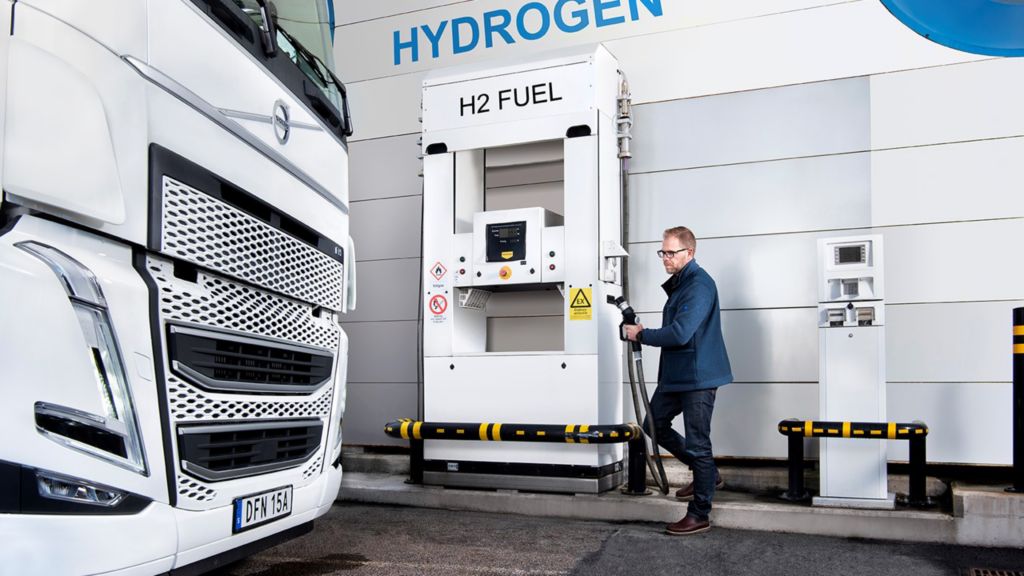Volvo Group in fossil free initiative


When Ovako builds Sweden’s largest fossil-free hydrogen facility, the goal is to greatly reduce CO2 emissions, develop local industrial hydrogen production, and take the first step towards a future hydrogen infrastructure for the transport sector. In a collaboration with several key actors in Swedish and Norwegian industry, Volvo Group is part of an initiative for production of hydrogen in Hofors.
With the new hydrogen plant in Hofors, Ovako will be the first in the world to heat steel with hydrogen prior to rolling and is the next major step towards climate-neutral steel production. The technical solution will also enable large-scale and cost-effective production of hydrogen for applications like fossil-free freight using fuel-cell trucks. With installations at multiple locations, this could enable a network with locally produced fossil-free hydrogen available for the transport sector.
“The transport sector is undergoing a paradigm shift, and green hydrogen will be one of the most important energy vectors in the transport industry for long-haul and heavy freight. Decentralized hydrogen production in the steel industry fits very well with the transport industry’s need for fossil-free fuel. This technological solution is scalable because it can be used by the steel industry in large parts of the world. Working in partnership with other industries to be involved in the entire value chain around our transport solutions is essential,” says Lars Stenqvist, Chief Technology Officer Volvo Group.
The initiative is also supported by the Swedish Energy Agency, with the shared goal of establishing industry-wide use of fossil-free hydrogen, expanding awareness of the potential of this fuel, and achieving cost-effective production. A filling station for hydrogen-powered heavy vehicles is intended to be built beside the hydrogen plant.
With the goal to have a fossil-free production in the steel industry, a surplus of hydrogen is created which creates a cost-efficiency for transportation actors, important to make use of in cross-industry collaborations.
As earlier announced through the launch of the joint venture cellcentric, Volvo Group’s and Daimler Truck AG’s goal is to start with customer tests of fuel-cell trucks in about three years and to be in series production of fuel-cell trucks during the second half of this decade. Volvo Group and other major truck manufacturers are calling for the setup of around 300 high-performance hydrogen refuelling stations suitable for heavy-duty vehicles by 2025. The collaboration with Ovako is an important step in this direction.
Volvo Group’s climate goals for the 1.5 °C-degree have been approved by Science Based Targets initiative (SBTi) and the road ahead is clear: net-zero value chain greenhouse gas emissions by 2050 at the very latest. For trucks and buses the targeted emissions reduction is 40% per vehicle km by 2030 and to achieve this, hydrogen-based fuel-cells will be of great importance, together with battery-electric vehicles and sustainable biofuels.